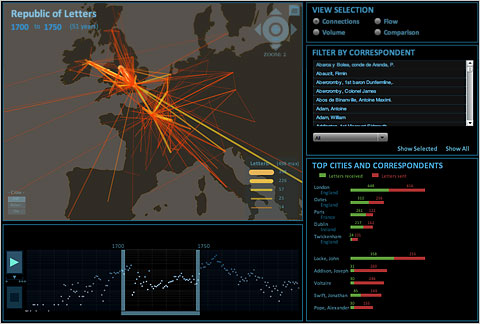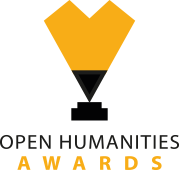We are excited to announce the first ever Open Humanities Awards. There are €15,000 worth of prizes on offer for 3-5 projects that use open content, open data or open source tools to further humanities teaching and research. Whether you’re interested in patterns of allusion in Aristotle, networks of correspondence in the Jewish Enlightenment or digitising public domain editions of Dante, we’d love to hear about the kinds of open projects that could support your interest!
##Why are we running these Awards?
Humanities research is based on the interpretation and analysis of a wide variety of cultural artefacts including texts, images and audiovisual material. Much of this material is now freely and openly available on the internet enabling people to discover, connect and contextualise cultural artefacts in ways previously very difficult.
We want to make the most of this new opportunity by encouraging budding developers and humanities researchers to collaborate and start new projects that use this open content and data paving the way for a vibrant cultural and research commons to emerge.
##Who can apply?
The Awards are open to any citizen of the EU.
##Who is judging the Awards?
The Awards will be judged by a stellar cast of leading Digital Humanists:
- Professor Stefan Gradmann, Humboldt University
- Dr Susan Schreibman, Trinity College Dublin
- Professor Andrew Prescott, Kings College London
- Professor David Robey, University of Oxford
- Dr Melissa Terras, University College London
- Nicole Coleman, Stanford University Humanities Center
- Dr Laurent Romary, INRIA
##What do we want to see?

We are challenging humanities researchers, designers and developers to create innovative projects open content, open data or open source to further teaching or research in the humanities.
For example you might want to:
- Start a project to collaboratively transcribe, annotate, or translate public domain texts
- Explore patterns of citation, allusion and influence using bibliographic metadata or textmining
- Analyse and/or visually represent complex networks or hidden patterns in collections of texts
- Use computational tools to generate new insights into collections of public domain images, audio or texts
You could start a project from scratch or build on an existing project. For inspiration you can have a look at the open-source tools the Open Knowledge Foundation has developed for use with cultural resources.
As long as your project involves open content, open data or open source tools and makes a contribution to humanities research, the choice is yours!
##Who is behind the awards?
The Awards are being coordinated by the Open Knowledge Foundation and are part of the DM2E project. They are also supported by the Digital Humanities Quarterly.
##How to apply
Applications are open from today (13th February 2013). Go to openhumanitiesawards.org to apply. The application deadline is 12th March 2013, so get going and good luck!
##More information…
For more information on the Awards including the rules and ideas for open datasets and tools to use visit openhumanitiesawards.org.
Sam is a data trainer and wrangler at Open Knowledge. He Tweets from @Noel_Mas









